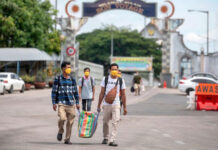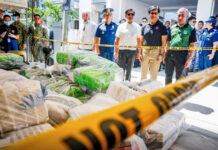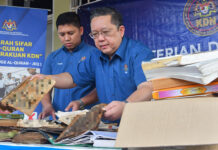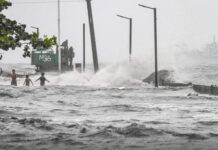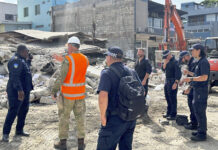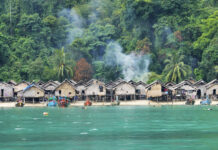The success of Ocean Week Brunei has highlighted the importance of collaboration and the significance of integrating biodiversity conservation into the development of the blue economy as a driver of sustainable development.
Encompassing 70 per cent of the planet, the oceans hold immense potential for economic growth, innovation, and environmental sustainability. In an era where sustainable development is paramount, Brunei has to chart a course towards a prosperous and resilient blue economy through more strategic collaborations. By partnering with local stakeholders, government bodies, private corporations, regional neighbours, and international organisations, Brunei can harness the vast potential of its marine resources. These collaborative efforts can drive further economic growth, create new jobs, and safeguard marine biodiversity.
The inaugural Ocean Week Brunei, organised by Poni Divers and Poni Foundation, in partnership with the Department of Fisheries at the Ministry of Primary Resources and Tourism aims to play a pivotal role in advancing this vision through various strategic discussions and initiatives through collaboration and partnerships.
The unveiling of the first ever LAUT Midi reef ball during the World Ocean Day event at the Department of Fisheries, officiated by guest of honour Minister of Primary Resources and Tourism Dato Seri Setia Dr Haji Abdul Manaf bin Haji Metussin marked a significant milestone for the Brunei’s Reef Ball Wall Project.
The initiative aims to connect with the successful Sarawak Reef Ball Project and create a continuous wall of artificial reefs by using reef balls to restore and protect marine habitats, to deter illegal bottom trawling activities and to provide new breeding grounds and habitats for marine life. Illegal bottom trawling activities under illegal, unmonitored and unregulated (IUU) fishing remains one of the biggest threats to the local seas, marine life, and fisheries.

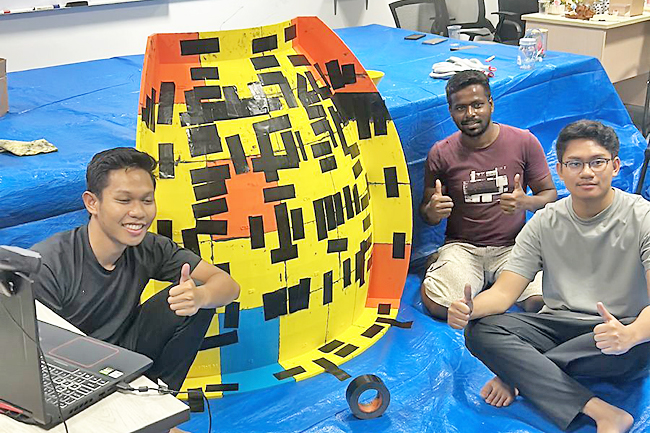
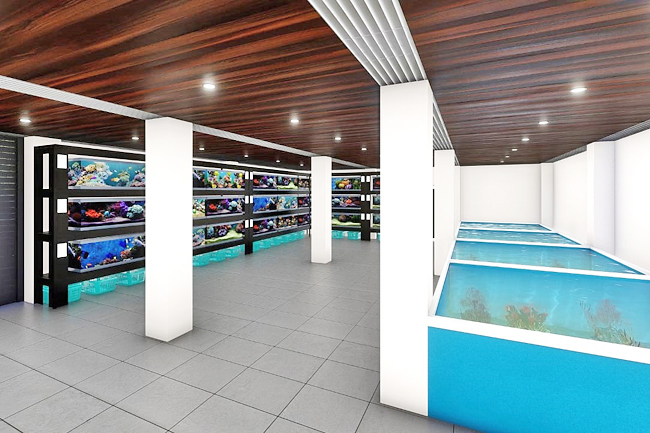
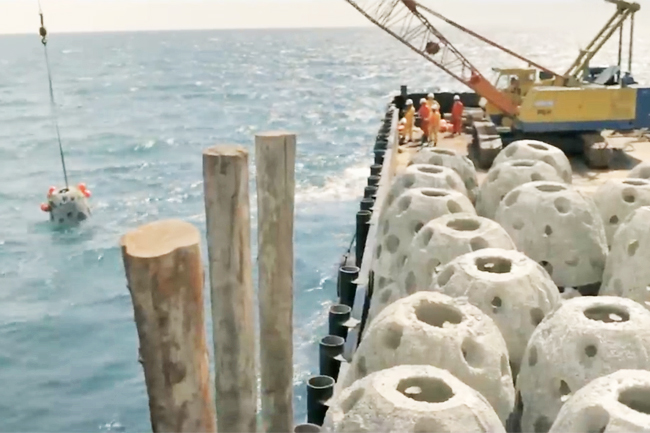
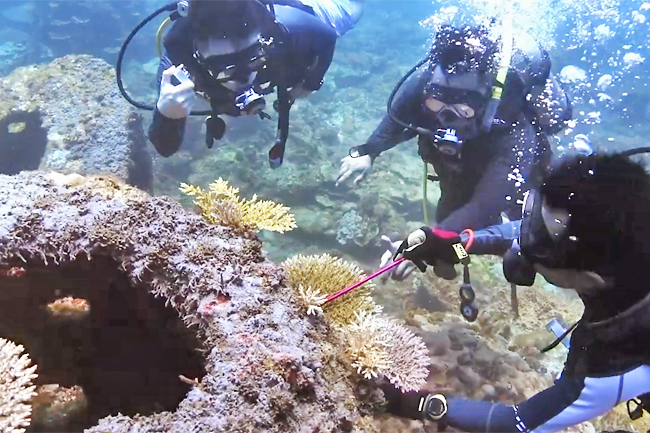
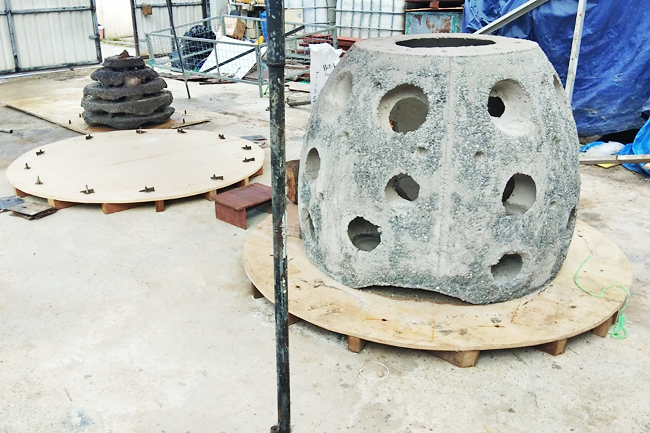
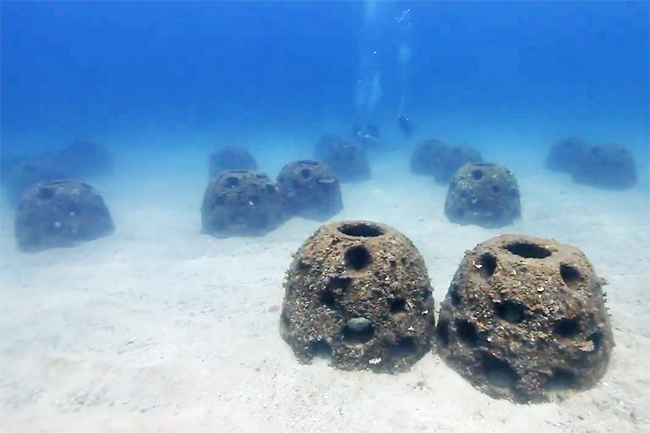
The LAUT Midi Reef Ball serves as the cornerstone of this ambitious Reef Ball Wall Project, weighing about one tonne in weight, reaching a height of one metre (m) and a width of 1.3m. When deployed in clusters of 10 to 20 units, these clusters act as a trap tearing trawling nets that go through the area.
The Reef Ball Foundation from Florida, United States, has deployed over two million reef balls worldwide in over 80 countries with 13 reef ball designs. The LAUT Midi Reef Ball is the 14th reef ball design, designed specifically for Brunei waters and is a world’s first, with it being 3D printed remotely with support from founder of Reef Ball Foundation in Florida Todd Barber, assembled locally, with the fibreglass mold fabricated locally and the actual reef ball fabricated here with local materials.
Over 25,000 reef balls have now been deployed in Sarawak since the 90s. These reef balls act as barriers to safeguard turtle migration routes from illegal bottom trawling activities.
Fish catch in certain areas like Sematan, Sarawak, where reef balls have been deployed, have increased by 400 per cent, turtle sightings and nestings have become a regular occurence again. James Bali, from the Sarawak Forestry Corporation, who was also a speaker during the Ocean Week Brunei and the Biodiversity Conference spearheaded the Sarawak Reef Ball Project said, “We have been deploying these reef balls in Sarawak waters for many years and are very open to working together with Brunei on the Reef Ball Project.”
The Reef Ball Wall Project aims to deploy 5,000 reef balls across the next five years to protect and restore Brunei’s coral reefs, build new breeding grounds to enhance fisheries stock, and to deter illegal bottom trawling activities. It also aims to join the Sarawak Reef Ball Barrier Reef connecting with reef balls at Miri and Lawas. By joining the Sarawak Reef Ball Barrier Reef, Brunei is not only fostering regional cooperation but also contributing to a larger, interconnected network of marine conservation efforts. The programme exemplifies how collaboration can lead to innovative solutions for the ocean.
The Biodiversity Beyond National Jurisdiction (BBNJ) agreement under the United Nations (UN) Convention on the Law of the Sea was adopted on June 19, 2023 by the Intergovernmental Conference on Marine Biodiversity of Areas Beyond National Jurisdiction convened under the auspices of the United Nations. The BBNJ framework can be leveraged as a key component by aligning local conservation efforts with global standards and commitments.
By learning from Sarawak’s successful deployment of reef balls, the Reef Ball Wall Project can adopt similar techniques and strategies to improve its own marine habitats. This collaboration can facilitate knowledge exchange, joint research initiatives, and shared resources, ultimately strengthening regional marine conservation. Working together, Brunei and Sarawak can develop comprehensive plans to enhance biodiversity, promote sustainable fishing practices, and support eco-tourism, benefiting both regions and contributing to the broader goals of environmental preservation and economic development in the ASEAN community.
During Ocean Week Brunei, Poni also announced its interest in developing an existing facility into the Brunei Ocean ARC (Aquatic Research Centre) at Tanjong Batu. Establishing a dedicated research centre for marine and aquatic studies presents an opportunity for universities, non-governmental organisations (NGO), and international schools alike to collaborate on critical environmental initiatives. This centre would serve as a hub for interdisciplinary research and facilitate partnerships with educational institutions and NGOs, enabling them to amplify their conservation efforts and community outreach programmes.
Additionally, the centre can host green camps for international schools, providing students with immersive learning experiences focused on environmental stewardship and marine conservation. Through this collaborative framework, the research centre would not only advance scientific knowledge but also inspire future generations to become advocates for the protection of our oceans and aquatic ecosystems.
One of the primary objectives of Ocean Week Brunei is to promote inclusivity in marine conservation and data management. Central to this mission is the coordination of data collection efforts among a spectrum of stakeholders, encompassing governmental bodies and private sector entities. Through the facilitation of collaboration and partnerships across these varied stakeholders, Poni Foundation aims to streamline and to optimise the process of data collection and maximise the utilisation of available resources.
Through structured partnerships, joint research projects, and data-sharing agreements, Ocean Week Brunei endeavours to create a conducive environment for collaborative data collection and analysis, thereby enhancing the understanding of marine environments and facilitating informed decision-making for sustainable ocean management.







